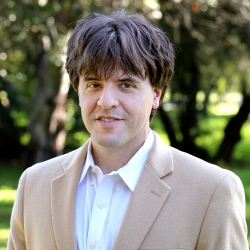2019 Recipient

2019 Recipient
Deisseroth received his AB from Harvard, MD from Stanford, and PhD from Stanford in 1998. He launched his laboratory spanning the Departments of Bioengineering and Psychiatry at Stanford in July 2004, where he and his students created and developed both optogenetics with microbial opsin genes (a technology to control specific neurons with light), and hydrogel-tissue chemistry (which includes CLARITY, STARmap, and many variants—all allowing the transformation of tissues into optically transparent and tractable hydrogel-hybrid forms suitable for high-resolution structural and molecular study). He was elected to the National Academy of Medicine in 2010, National Academy of Sciences in 2012, and National Academy of Engineering in 2019.Twenty-three alumni from his lab have moved on to tenure-track faculty positions (including Feng Zhang and Ed Boyden, the two students on his initial optogenetics paper).
Deisseroth was the sole recipient (for optogenetics) of the 2010 Koetser Prize, 2010 Nakasone Prize, 2013 Lounsbery Prize, 2014 Dickson Prize in Science, 2015 Keio Prize, 2015 Lurie Prize, 2015 Albany Prize, 2015 Dickson Prize in Medicine, 2017 Redelsheimer Prize, 2017 Fresenius Prize, 2018 Eisenberg Prize, and 2018 Kyoto Prize. For his discoveries, Deisseroth has also received the NIH Director’s Pioneer Award (2005), Zuelch Prize (2012), Perl Prize (2012), BRAIN Prize (2013), Pasarow Prize (2013), Breakthrough Prize (2015), Gabbay Prize (2015), BBVA Award (2016), Massry Prize (2016) and Harvey Prize from the Technion in Israel (2017).
Karl Deisseroth
